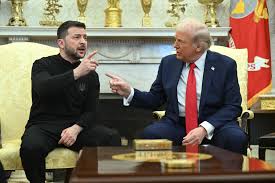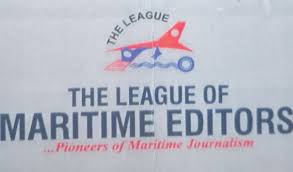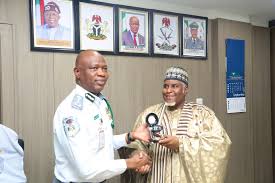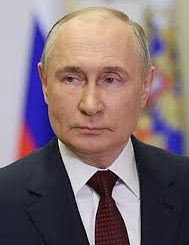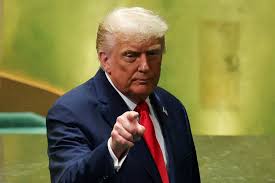By Elizabeth Chukwuma
Abdullahrahmane Tchiani an Army General and Transitional President of Niger Republic, had confirmed that President Emmanuel Macron of France was the one who opened the eyes of the leadership of countries in the Sahel region to the exploitation of their mineral resources by foreigners, forcing them to take the bold initiative to reclaim their mineral resources. The Army General had said that the plan of France and the North American country of the United States is for the countries in the region to remain so that they will continue to exploit their resources and develop their countries.
The French authorities may have read the handwriting on the wall that after granting independence to the 14 French-speaking countries, the French companies currently enjoying exclusive mining rights to gold, diamonds, uranium, and other mineral resources discovered in Burkina Faso, Niger, and Mali, all Sahel region countries, may lose out.
In a bold attempt to keep the former French colonies under firm economic control, France was said to have formulated a new policy in 1944, which was put into practice in 1947, after the reconstruction of post- World war II, in, Europe by the US, as outlined in the Marshall Plan, .
To implement these new laws, the French colonial law, designed to maintain economic control over the 14 Francophone countries was fully activated in 1947. The French government tested the effectiveness of the new colonial laws, turned pact, between 1958 and 1961 after granting the former colonies independence. It was said to have helped France influence the economies, military, and currency of the former colonies, leaving them with little or no say in the running of their own countries.
The pact, reportedly signed by Guinea Bissau, Côte d’Ivoire, Senegal, Togo, Benin, Equatorial Guinea, the Central African countries of Gabon and Cameroon, as well as the Sahel countries of Burkina Faso, Niger, and Mali with France, included “continued economic ties” in areas such as the CFA franc, annual financial reports, and payment of colonial debt incurred during the colonial period, a scheme many call a major fraud that impoverished the French-speaking countries.

While the United States had contributed over US$13 billion to the reconstruction of Europe after World War II, France was said to have sourced a large portion of its reconstruction capital from French-speaking African countries through the mining and export of gold, diamonds, uranium, lithium, and other mineral resources sold on the international market. For instance, France extracts and exports 30% of the uranium produced in Mali, yet 90% of Malians do not have access to electricity.
The situation across the African continent, particularly in the Sahel region where French, Canadian, and Australian mining companies had been extracting vast mineral resources, became so alarming that Walter Rodney, a Marxist lecturer at the University of Dar es Salaam in Tanzania, wrote a world-class classic: How Europe Underdeveloped Africa. The book had exposed how multinational companies in Europe, Asia, and the US have long exploited African resources. Rodney became a target and was assassinated with an explosive communication device in 1980 in Georgetown, Guyana.
Though Rodney died decades ago, African leaders are no longer willing to play second fiddle to France, which remains deeply entrenched in exploiting its former colonies.
The massive infrastructural developments in Burkina Faso, Niger, and Mali since 2022 stand as an indictment of France. The previously dusty roads in Ouagadougou, the capital of Burkina Faso, and other major towns are disappearing, just as high-rise buildings both residential and commercial are spring up in the sprawling city that speak volumes.
France may have been severely impacted as virtually all of its former colonies have turned their backs on it, fueling speculations that France, a global power with UN veto authority is in serious trouble that may take years to resolve.
President Macron, under intense pressure from various quarters in France to resign for “giving Africans the room” to challenge the country’s authority over their resources, may have resorted to a Plan B. He had previously claimed that the mineral resources of the African countries still “belong to France.”
French political actors and CEOs of multinational companies worry their companies may collapse if African countries stop shipping raw materials to them. Many French-manufactured products, including vehicles, are primarily exported to the French-speaking countries.
Critics of President Macron argue that his continued stay in office would worsen France’s situation. Determined to crush the revolution in Burkina Faso, Niger, and Mali, French parliamentarians are calling for a united European front to act before the agitation spreads to other African countries.
Realizing his error in revealing the depth of exploitation of Africa, President Macron allegedly with support from US President Donald Trump has targeted Captain Ibrahim Traoré, the revolutionary leader of Burkina Fso, in the Sahel region, and is also trying to pressure Generals. Tchiani of Niger and Assimi Goita of Mali to abandon their vision and renegotiate with France.
President Trump, thinking ahead of his French counterpart, had openly stated that if former French colonies could break free from France, the movement might spread to the US as well, potentially harming its heavy industries.
Trump had reportedly dangled a multi-billion-dollar aid package to 13 African countries, including Nigeria, in exchange for security support—but it was rejected outright.
The US aid rejection by the 13 African countries may have forced Trump to approach President Félix Tshisekedi of the Democratic Republic of Congo (DRC), striking a deal for exclusive access to mine critical minerals—diamonds, gold, copper, cobalt, lithium, tantalum, and uranium—essential for US industries and national security. With an estimated mineral resources value of over US$24 trillion, DRC’s resources are highly sought after.
President Trump’s negotiators were said to have reportedly convinced the DRC government to approve the deal by offering training, weapons, and security support for the country’s armed forces, which many believe will give the US, military personnel access to DRC’s military bases to protect their strategic resources.
Trump had also expected Ghanaian President John Mahama Dramani to hand over the exclusive mining rights of Ghana’s gold and other minerals but was disappointed.
Instead, the Ghanaian government had established a “Gold Board” to streamline the country’s gold sector and ensure the nation gets more value from its exports. The board oversees, monitors, and manages gold buying, selling, and exporting artisanal miners’ gold. This move was said to have barred licensed traders and bullion dealers from exporting gold directly to the US or any other Ghana’s trading partner at cheap rates.
The US government, which had for years received cheap gold from Ghana and the Sahel region, reportedly did not welcome this development. Nevertheless, President Dramani shocked the international community by announcing that Ghana’s new Gold Board had generated US$2.7 billion from gold exports in the first quarter of 2025—a major windfall. He credited the gains to reforms that prevented small-scale miners from selling gold cheaply to the traders who then exported it at higher margins.


